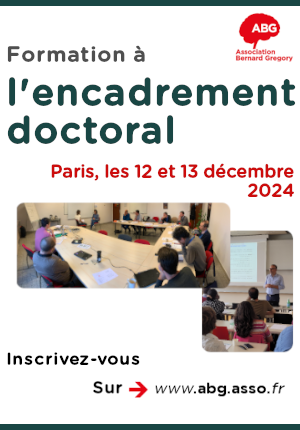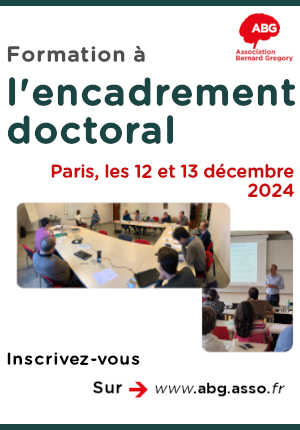Modelling and control of Clean Hydrogen refuelling station with Anion Exchange Membrane water Electrolyzers
| ABG-126202 | Thesis topic | |
| 2024-10-09 | Other public funding |
- Digital
- Energy
- Engineering sciences
Topic description
The team Perennisation of Industrial Systems of the CRISTAL Laboratory of Lille (Research Center in Computer Science and Automatic Control) works on the modelling of dynamical multiphysics energy systems, their prognosis, diagnosis and control. They focus on the production of green hydrogen with renewables. The PhD thesis is funded by a National Agency Research program, in collaboration with a laboratory of the French Alternative Energies and Atomic Energy Commission (CEA) in Grenoble (French Alps) who works on new electrolyzer technologies.
Whereas high temperature electrolyzers display a very good efficiency, they are unable to work with intermittent sources due to lengthy start time. Current low-temperature electrolyzers suffer from low efficiency or the use of critical materials. Anion exchange membrane water electrolysis (AEMWE) combine low investment and operation costs. However, their degradation mechanisms are not well known today and their investigation will be the topic of another PhD thesis by the CEA.
The topic of this PhD thesis is to integrate AEMWE in a green hydrogen refueling station and to operate it in order to mitigate the degradation phenomena that will be investigated by a PhD with a chemical background.
The PhD thesis will be divided in three parts:
First , a modelling step will be completed, including validation of previous AEMWE models with data. From this multiphysics model, one will design prognosis algorithms (estimation of remaining useful life). The design will be done in close collaboration with the CEA Grenoble laboratory. An attention will be given to aspects tied to the intermittency of the sources (cycling, erratic values, start and stop, etc.). The model will be coupled with mechanistic degradation models from the CEA. An algorithm will be designed to recalibrate the model with real-time data.
Second, a representation of a stand-alone (not connected to outside refilling) hydrogen station will be done, and coupled with the previous model. From the full model, one will be able to design prognosis algorithms.
Third, using realistic scenarios, one will design an optimization of the remaining useful life of the electrolyzer, depending on its control and operating modes. As these depend on the consumption profile, the latter will be modelled, either using statistical or machine learning methods, and the role of incentives to help shape the hydrogen output profile will be studied. Finally, the algorithms will be tested online, on a real-time device, at least on the electrolyzer side.
Ideally, the PhD candidate has a background in modelling and control of dynamical processes, and at least a basic knowledge in engineering (fluid mechanics, thermodynamics, chemistry). He is able to program in Matlab/Simulink.
The PhD will be inserted in a team of 5 researchers. A post-doc student works in a European project on the degradation patterns of electrolyzers. Another PhD student will work on the management of a network of refueling stations, which topic will be a companion of the present one. The work will be done in close collaboration with the CEA, so some short stays at the Grenoble Lab to be familiar with experimental devices are scheduled.
Starting date
Funding category
Funding further details
Presentation of host institution and host laboratory
CRISTAL Laboratory of Lille (Research Center in Computer Science and Automatic Control) is the main laboratory of informatics, automatic control and signal north of Paris. All researchers share a new building close to public transportation facilities. The team Perennisation of Industrial Systems of the works on the modelling of dynamical multiphysics energy systems, their prognosis, diagnosis and control. They focus on the production of green hydrogen with renewables.
PhD title
Country where you obtained your PhD
Institution awarding doctoral degree
Graduate school
Candidate's profile
The candidate will have good skills in Automatic control and a good background in mathematics, ideally in Process control. It is preferred that he has also a knowledge about physics (thermal energy). The candidate will start in january 2025.
Vous avez déjà un compte ?
Nouvel utilisateur ?
Get ABG’s monthly newsletters including news, job offers, grants & fellowships and a selection of relevant events…
Discover our members
 CESI
CESI  Ifremer
Ifremer  PhDOOC
PhDOOC  Aérocentre, Pôle d'excellence régional
Aérocentre, Pôle d'excellence régional  ONERA - The French Aerospace Lab
ONERA - The French Aerospace Lab  Généthon
Généthon  CASDEN
CASDEN  Nokia Bell Labs France
Nokia Bell Labs France  Groupe AFNOR - Association française de normalisation
Groupe AFNOR - Association française de normalisation  Institut Sup'biotech de Paris
Institut Sup'biotech de Paris  TotalEnergies
TotalEnergies  SUEZ
SUEZ  Laboratoire National de Métrologie et d'Essais - LNE
Laboratoire National de Métrologie et d'Essais - LNE  ANRT
ANRT  MabDesign
MabDesign  Tecknowmetrix
Tecknowmetrix  Institut de Radioprotection et de Sureté Nucléaire - IRSN - Siège
Institut de Radioprotection et de Sureté Nucléaire - IRSN - Siège  ADEME
ADEME  MabDesign
MabDesign




